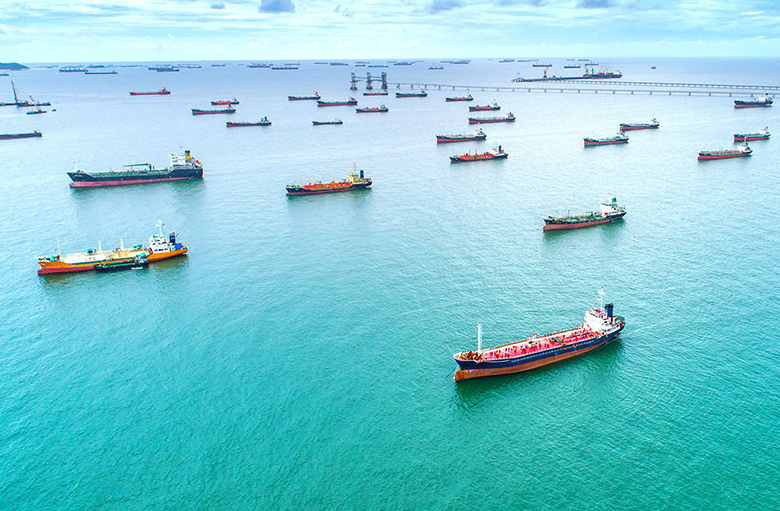
Marine insurers, along with leading banks that finance the shipping industry that have signed on to follow the Poseidon Principles frameworks, have agreed to increase the standards by which they measure climate alignment in the maritime industry.
The Poseidon Principles for Marine Insurance create a common global baseline that is consistent with and supportive of society’s goals to better enable insurers to assess and disclose their portfolio alignment.
Poseidon Principles have committed to adopting an emissions reduction trajectory in line with net-zero commitments, as soon as such a trajectory or trajectories become available.
As part of these commitments, which align with ambition of the UN and the latest available climate science, 30 shipping banks and 16 marine insurance providers and brokers participating in the Poseidon Principles will benchmark their portfolios against two trajectories (see Marine & Cargo Global Insurance Market Forecasts).
The first one will be aligned with the IMO’s 50% reduction by 2050, and one aligned with net-zero by 2050 and a maximum temperature rise of 1.5C above pre-industrial levels by 2100, to meet the temperature goals of the Paris Agreement.
For the second trajectory to be consistent with a 1.5C future, the scope will be expanded to include all greenhouse gas species, and to account for well-to-wake emissions.
The new commitment means that once a new trajectory based on credible and well-recognised sources is established and adopted by the members of the individual initiatives, both benchmarks would be in play.
The Poseidon Principles are already aligned with the International Maritime Organization’s ambition to reduce GHG emissions from international shipping by at least 50% by 2050. The Poseidon Principles for Marine Insurance also benchmark against an emissions reduction trajectory in line with a 100% reduction by 2050.
Access to real emissions data through the Poseidon Principles creates tangible impact in marine insurance business as well as in the real economy. Establishing common global decarbonization trajectories will help insurers make business decisions that reflect the latest available climate science.

The Poseidon Principles for Marine Insurance recognize the role insurers play in the shipping industry and promote responsible environmental stewardship throughout the maritime value chain. They set a benchmark for what it means to be a responsible insurer in the maritime sector and provide actionable guidance on how to achieve this.
The Poseidon Principles for Marine Insurance are consistent with the policies and ambitions of the International Maritime Organization (IMO) and they have also chosen to take steps toward alignment with the Paris Agreement.
As a result, the Poseidon Principles for Marine Insurance enable insurers to assess and disclose their portfolios with responsible environmental impacts and incentivize international shipping’s decarbonization – to support a better future for the shipping industry and society.
The Poseidon Principles for Marine Insurance are applicable to insurance providers with hull and machinery coverage and are supported by insurance brokers and business partners. They apply globally, to all shipping activities where a vessel or vessels fall under the purview of the IMO.
by Yana Keller




